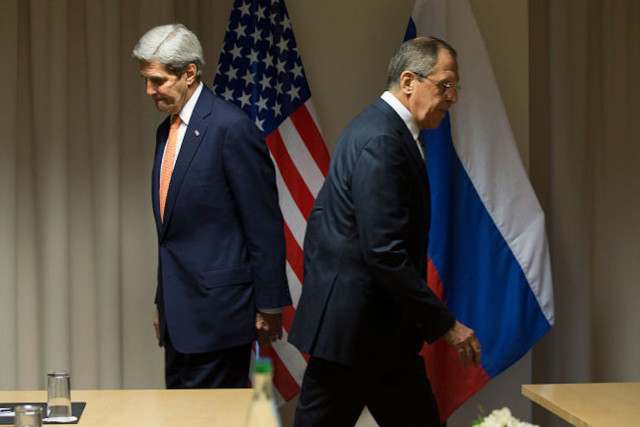
The UN and other international aid agencies announced this week that they fear a pending humanitarian disaster for civilians living in Aleppo, Syria’s most populous city. With the help of Russian air strikes, government troops have mostly surrounded rebel-held areas of the city, threatening to sever the aid lifeline for hundreds of thousands of people.
Earlier this month, forces loyal to President Assad retook Nubl and Zahraa, about 15 miles north of the city, cutting off a vital opposition supply route leading from Turkey. Rebel fighters now face “a severe challenge in mobilizing sufficient forces to reverse this new attack” and will be “no longer be able to receive reinforcements” following the regime’s gains, according to a report by the Institute for the Study of War.
Foreigners have dominated the advance against the opposition, adding momentum to the regime’s campaign to retake the central Aleppo from the northwest. Russian airstrikes and special forces have coordinated closely with government units, while the U.S. military estimates that up to 2,000 Hezbollah, Shiite militia, and other fighters backed by Iranian Islamic Revolutionary Guard Corps (IRGC) have also been active in the provence.
The advance of regime forces not only cuts off the supply routes for rebels, but also limits the ability of the UN and NGOs to transport aid. to civilians. The UN says that food assistance for up to 300,000 people living in Aleppo could be blocked following last week’s offensive. The World Food Program will be unable to reach the eastern part of the city if, as appears likely, an alternative route is also be severed.
Russian and Syrian forces have faced international criticism for their actions. Not only have their forces indiscriminately attacked civilian areas, but they are deliberately encircling cities, laying siege to civilian districts, and starving out opposition control areas. Donald Tusk, President of the European Council, said Moscow is “making an already very bad situation even worse” by creating conditions that force people to flee their homes.
The stark plight civilians in Aleppo has not brought about a renewed urgency in Geneva, where diplomats have attempted to restart proximity talks designed first to begin a ceasefire and, ultimately, to end the fighting. The talks, which included U.S., Russian, and Syrian officials, as well as opposition leaders, ended on February 3rd without progress, three days after they began.
Buoyed by momentum from their offensives, Russian and Syrian diplomats were not in a mood to compromise, hoping to gain more leverage` in the coming weeks based on their military successes. Rebel representatives, on the other hand, had refused to formally take part in negotiations until the shelling of civilian areas stopped. The two parties were unable to bridge their differences to truly engage with one another. While talks are scheduled to resume no later than February 25th, events on the ground appear as if they far outpace any progress made by diplomats and politicians a 1,700 miles away.

